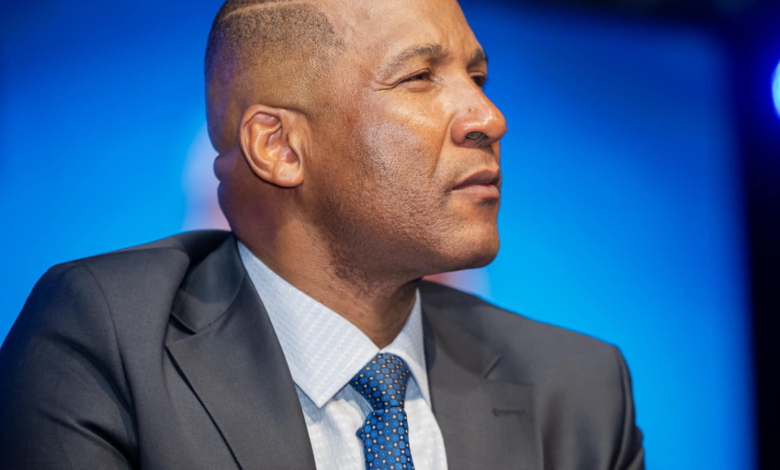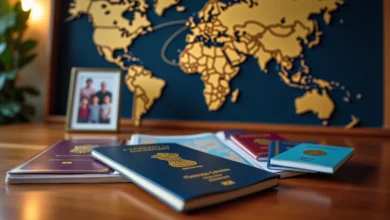
Meet Duma Boko: Botswana’s New President and His Plans for the BDP
Botswana has started a new chapter as Duma Boko takes the presidential office. The Botswana Democratic Party (BDP) leader won decisively in the 2024 elections, which marks a major move in the country’s governance. This change is vital for Botswana’s democratic institutions and future growth.
The new government must tackle several urgent challenges. Unemployment rates remain high throughout Botswana, while citizens ask for better transparency in government operations. Boko’s leadership faces a test as he implements reforms and stays accountable to the voters who chose him to lead their nation. The ongoing battle against corruption adds another layer of complexity to his responsibilities.
Duma Boko’s Background and Rise to Power
Duma Gideon Boko was born in December 1969 in the small town of Mahalapye. He became one of Botswana’s most prominent legal minds before rising in politics. His trip to leadership started at the University of Botswana, where he showed early leadership qualities as a Student Representative Council member.
Boko completed his original law degree in 1993 and boosted his credentials at Harvard Law School by earning a Master of Laws degree. He split his time between teaching at the University of Botswana (1993-2003) and running his own law firm, showing his dedication to legal excellence.
His political career took off after becoming the Botswana National Front (BNF) leader in 2010. Boko’s most important political achievement came through building coalitions that led to creating the Umbrella for Democratic Change (UDC) in 2012. The UDC achieved remarkable milestones under his leadership:
- Secured 17 parliamentary seats in the 2014 elections
- Managed to keep strong opposition presence with 15 seats in 2019
- Won multiple legal battles to preserve party unity
Boko, a human rights lawyer and political leader, consistently promoted democratic reforms and transparency in governance. His persistence through three decades in opposition combined with his legal expertise and coalition-building skills ended up leading to his historic victory in the 2024 elections. This victory ended the Botswana Democratic Party’s six-decade rule.
The Historic 2024 Botswana Election
Botswana’s political landscape transformed after the general election on October 30, 2024. The Umbrella for Democratic Change (UDC) won 36 seats in parliament and ended the Botswana Democratic Party’s (BDP) 58-year control since independence.
Voters made their choices clear at the polls:
- UDC captured 37.22% of total votes
- BDP dropped to fourth place with just 4 seats
- A remarkable 81.42% of voters cast their ballots
Economic hardships drove the election results. High unemployment at 28% and reduced diamond revenues frustrated many citizens. Young voters strongly supported the UDC’s promises to double minimum wages and enhance social services.
Botswana showed its democratic strength through a smooth transfer of power. President Mokgweetsi Masisi conceded gracefully on November 1, 2024. The United States praised this democratic display, and election observers confirmed a fair process without major issues.
Life continued normally in the capital Gaborone as opposition supporters celebrated quietly. Many citizens viewed this as their country’s fresh start. This historic change proves that voters will demand better alternatives when economic growth stalls and jobs become scarce, regardless of how long a party has ruled.
Boko’s Vision for Botswana
President Boko envisions a complete economic transformation for Botswana. His reconstruction and diversification plans are the life-blood of his priorities. The administration has set bold targets to tackle the nation’s 38.2% youth unemployment rate through several growth initiatives.
The UDC government’s economic agenda has:
- Creation of 100,000 jobs within 12 months
- Implementation of a P3,000 monthly living wage
- Establishment of a modern High-Performance Sports Center
- Development of sports-related businesses and tourism
- Integration of ethnic minorities into mainstream economy
Constitutional reform stands as a key priority in Boko’s vision to create a more inclusive and modern governance framework. His administration will address Botswana’s heavy reliance on diamond revenues, which make up more than 90% of exports, through aggressive economic diversification strategies.
The government has made social protection reforms a priority and will implement a Single Social Registry to target social programs accurately. Boko’s team will transform the public works program into a complete skills development initiative that focuses on infrastructure development and job creation.
The UDC government wants to improve infrastructure quality, especially when you have water and electricity sectors that need attention. They will also enhance social services delivery. These initiatives line up with Boko’s bigger picture of building an inclusive economy that benefits all Batswana, particularly the youth who were crucial to his electoral success.
Challenges Facing the New Administration
Botswana’s new administration inherits a challenging landscape. The economy shows troubling signs – unemployment has hit 27%, while youth unemployment has reached an alarming 45%. Diamond revenues, the country’s economic foundation, have plunged. Debswana’s sales dropped by 50% in the first six months of 2024.
The administration must tackle several pressing issues. State coffers show negative balances, creating severe economic constraints. The Directorate on Intelligence and Security Services needs reform after previous compromises. Public confidence in government institutions and the judiciary requires rebuilding. Anti-corruption measures demand implementation. The previous administration left behind tribal and regional divisions that need healing.
These challenges require careful handling to protect Botswana’s position as Africa’s stability beacon. The leadership must reshape government institutions to ensure accountability and transparency. They face a complex task – reforming systems while keeping the civil service running smoothly. This becomes even more crucial as diamond market weakness continues to affect the nation’s economic backbone.
The path ahead depends on balancing economic transformation with social unity. More than 200,000 young citizens ready for work remain jobless. This puts immense pressure on the new administration to show quick improvements.
Duma Boko’s presidency marks a defining moment in Botswana’s democratic experience. It ends six decades of single-party rule. His credentials as a Harvard-educated lawyer and rich political experience make him well-suited to address Botswana’s urgent challenges. His administration’s bold economic transformation plan aims to create jobs and reform institutions. This approach signals a departure from previous policies while strengthening Botswana’s democratic foundations.
The new government must deliver concrete results to succeed. Youth unemployment stands at 45%, and the economy needs to vary beyond diamond revenues. Botswana’s peaceful power transition shows its democratic strength, but Boko’s administration faces its true test ahead. They need to implement reforms while keeping social stability intact. These initial policies and decisions will shape Botswana’s path forward and determine if this historic change brings meaningful progress to all Batswana.






